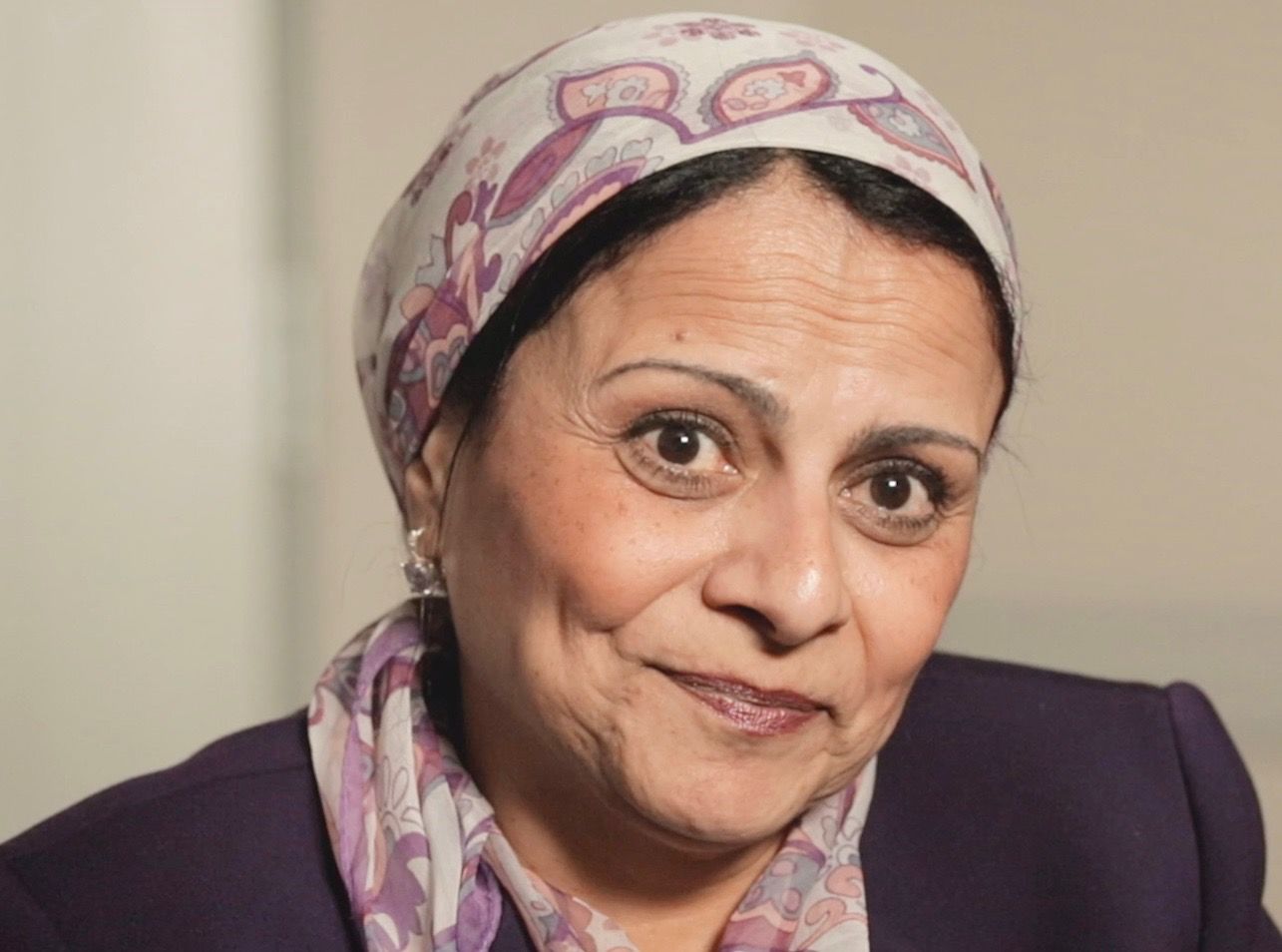
On September 12, 2001 Manal Ezzat was focused on one thing — rebuilding and repurposing the area of the Pentagon that was hit on 9-11. Ms. Ezzat, an Army Corps of Engineers employee who was project manager for the Army’s space in the Pentagon at the time of the attack, says she knew that she didn’t want to rebuild it into office space again. And the significance that she was Muslim, rebuilding the site of the disaster was not lost on her.
Ms. Ezzat soon came up with the idea of a chapel to fill that troubling space. Her team created a quiet sanctuary with prayer books from several denominations. Stained glass windows pay tribute to those who died here with the message: “United in Memory, September 11, 2001.” And next door is a memorial where every victim’s name is written on the wall, their life stories told in two thick books.
“There was a lot of emotion built into that effort,” comments Ms. Ezzat. “We just wanted to make it a peaceful place that could help wipe away the tragedy.”
Ms. Ezzat says she appreciates that all denominations feel comfortable in the chapel including her Muslim colleagues. “The faithful prayers which take place in this space, whether it’s Jewish prayer, Islamic prayer, Christian prayer, I think it’s beautiful,” she says. “In Islam, we believe prayers — supplications — to the dead reach them, wherever they are.
Qawiy Abdullah Sabree, a cybersecurity expert employee, says he frequents the chapel and often finds himself praying alongside co-workers who might be reading from a Christian prayer book, standing for Jewish davening or sitting in quiet meditation. Recounting how he lost colleagues on that day, Mr. Sabree says just prior to the attack, he had stepped away from the building, missing death but happenstance. “It’s something you do not forget,” somberly recounts Mr. Sabree. “And so you remember it and keep it from happening again, ever. That space where the chapel actually is, it’s a reminder.”



